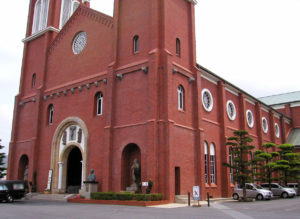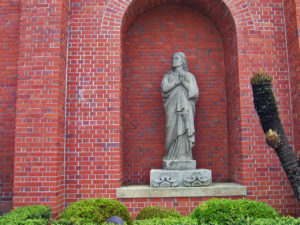Churches and Cathedrals in Nagasaki region
This Tourist information is created by Japan KYUSHU Tourist for enjoyment
of your travel. We are a Travel Agent in Fukuoka specializing in Kyushu.
When you have an idea or a plan for traveling in Kyushu, Japan, please contact
us by sending an Enquiry.
Nagasaki Port was opened and the first Portuguese ship arrived in 1571. And development
of the town of cape was started as Christian town in 1571 and many Churches were
constructed in Nagasaki.
However, due to the Tokugawa Shogunate’s Ban on Christianity in 1614, most of the
church buildings were destroyed.
Since ban on the Christianity was lifted in 1873, new Christian history in Japan has begun
and many Churches and Cathedrals have been constructed.
The Cathedral is one of the significant Christian Pilgrimage site in Japan. Established 1865,
this church is officially known as “Oura Cathedral, the Church of 26 Martyrs.” It was built by
the French priest Bernard Petitjean of Fier who had been dispatched by the Foreign
Missionary Church of Paris to dedicate prayers to the 26 saints martyred on Nishizaka hill.
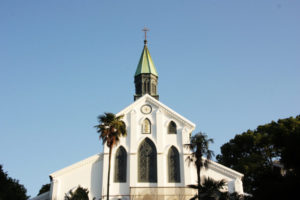 |
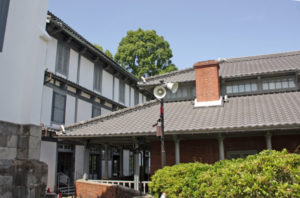 |
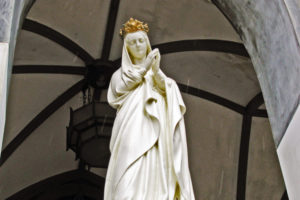 |
Urakami Cathedral, in Nagasaki
Construction of the original Urakami Cathedral, a brick Romanesque building, began in 1895,
after a long-standing ban on Christianity was lifted.
When completed in 1914, it was the largest Catholic church in East Asia.
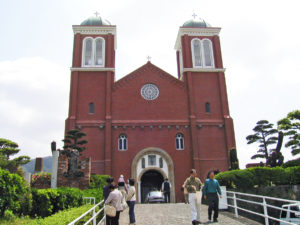 |
The church is located near JR Nagasaki Station which was constructed
for Japanese Christians in 1986.
The church was dedicated to the 16 Saints of Nagasaki (St. Thomas and the 15 Martyrs)
in 1988, and the monument honoring them was erected in the premise.
The 16 Saints were martyred in Nagasaki from 1633 to 1637.
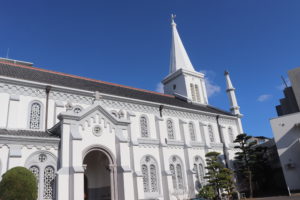 |
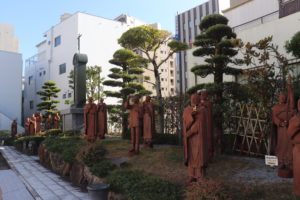 |
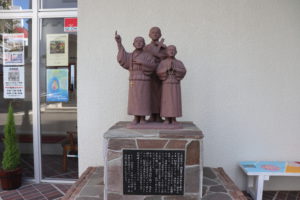 |
Saint Filippo de Jesus Church ( Japan 26 Saints Memorial Church )
This is a church with Gaudi-style twin tower designed by Kenjiro Imai, built next to the
Nishizaka Martyrdom site. When there was a plan to build a memorial hall for the
26 Japanese Saints next to Nishizaka Martyrdon site, a large donation was made from
Mexico, and the Church was built in 1962.
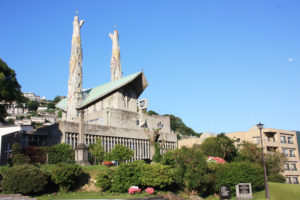 |
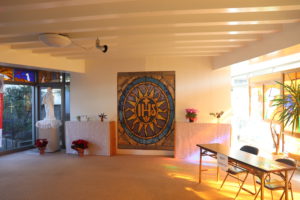 |
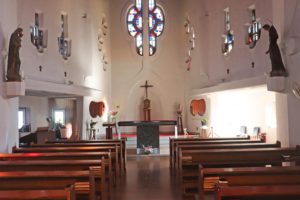 |
Hongochi Church, Saint Kolbe Museum, in Nagasaki
Father Maximilian Kolbe was born in Poland in 1894 and was a priest of the Conventual
Order of St. Francis.
He had been active in promoting the veneration of the Immaculate Virgin Mary.
He came to Japan in 1930 and began educating seminarians and publishing a monthly
magazine ” the veneration of the Immaculate Virgin Mary.”
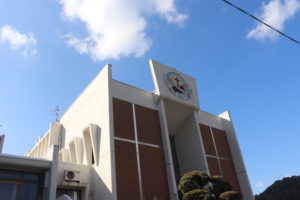 |
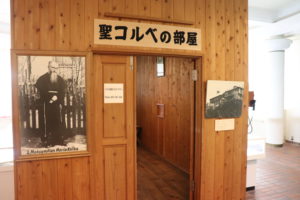 |
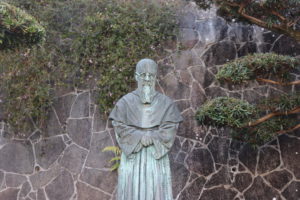 |
Built in 1882 by Father de Rotz, this low-ceiling church features a brick exterior, wood interior
and stone entranceway. The roof itself is low in order to limit damage done by strong winds.
The church’s bell was brought here from France by a priest and rings out beautifully every
morning. The location is famous as the place where the movie “Gege” was filmed.
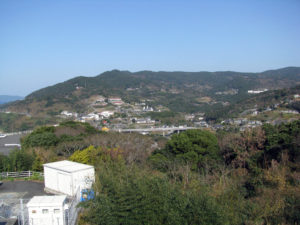 |
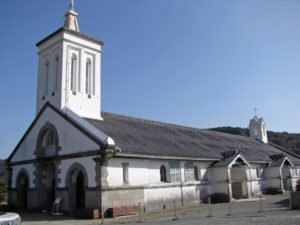 |
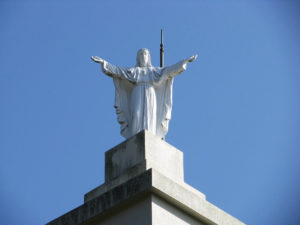 |
The Church is located in Kurosaki district, where was place of the setting for Endo Shusaku’s
novel Silence. In 1897, the foundations were laid down according to Father de Rotz’s design.
Construction followed and in 1920 the church was completed.
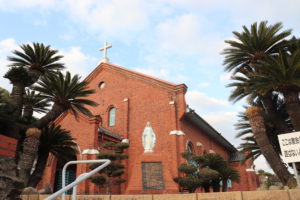 |
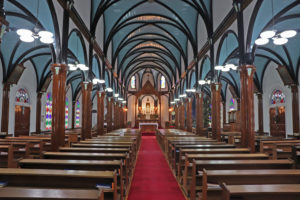 |
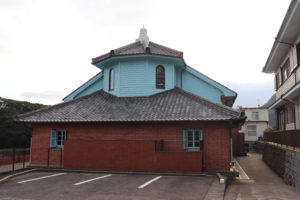 |
Page 1 2

